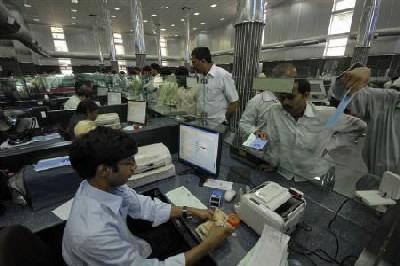 | « Back to article | Print this article |
Beware: Banks may protect their employees over their customers
We place our hard-earned money in a bank because of the trust we repose in it. Generally, our money remains safe. However, occasionally there are instances when some bank official perpetrates a fraud and misappropriates our money.
But this does not come to light till we check our record and reconcile the transactions. Often, there is a considerable time lag between the date of the fraud and the date of detection.
When the customer realises that money has been siphoned from his/her account, he corresponds with the bank.
The bank will take its time to look into the complaint and carry out an investigation. Ultimately, if the bank refuses to admit its liability, the customer is forced to take recourse to legal action.
Banks tend to raise all sorts of defences to protect their erring officials. Issues like liability of the bank and the manner in which the period of limitation is to be computed need to be dealt with.
Click NEXT to read more...
Beware: Banks may protect their employees over their customers
Pooja Joshi had a personal saving bank account with Vijaya Bank, Bandra Bbranch, Mumbai. In the same branch were two current accounts in the name of M/s Design Deals and M/s Salsun Exports (P) Ltd, which Pooja operated in her capacity as director of these companies.
She deposited Rs 5 lakh in her savings account on June 3, 1997. Since the cashier was not available at the counter, the branch manager accepted the amount and stamped and signed the counterfoil of the pay-in slip.
Time went by without her realising that the money deposited was not credited to her account. Later, when she handed over the documents to her chartered accountant to prepare her income tax returns, the accountant found this amount had not been credited to her account and brought this to her notice in August 1998, by which time one year had elapsed.
Pooja took up the matter with the bank. After protracted correspondence, the bank replied on July 3, 2000, confirming that the acknowledgement on the counterfoil of the pay-in slip was that of its chief manager Rajiv Shetty, but no explanation was given why the amount had not been credited to her account.
Click NEXT to read more...
Beware: Banks may protect their employees over their customers
Ultimately, in September 2000, Pooja filed a consumer complaint before the Maharashtra State Commission. The bank claimed the complaint was time-barred. On facts, the bank defended itself by claiming the cashier was present on the date of deposit but had not signed the pay-in slip, and also the stamp affixed was for transfer transaction and not cash transaction, which meant the amount had never been deposited.
The State Commission held the bank guilty of deficiency in service and directed it to credit Rs 5 lakh to Pooja's account, with interest at 7.5 per cent per annum from the date of deposit till realisation, plus compensation of Rs 1 lakh and costs of Rs 10,000. The bank appealed to the National Commission against his order.
The National Commission held the period of limitation would not start to run from the date of the transaction when money was deposited, but would be computed from the date when Pooja's demand to credit the amount to her account was rejected. Since the claim had been repudiated in July / August 2000, the complaint which was filed on September 15, 2000, was held to be within limitation.
Click NEXT to read more...
Beware: Banks may protect their employees over their customers
On merits, the Commission held there was no dispute about the counterfoil being in the prescribed form from a pay-in slip book. Pooja had also filed her affidavit in support of her claim.
The bank had neither cross-examined her in person or through interrogatories, nor had any evidence been led to show that money had not been received. The bank neither filed the affidavit of the cashier nor that of the chief manager who had put his signatures and the rubber stamp of the bank on the counterfoil.
But instead, it had filed the affidavit of an assistant manager, who did not have any personal knowledge of the transaction.
Accordingly, the National Commission upheld the order of the State Commission and dismissed the bank's appeal, with further costs of Rs 20,000 payable to Pooja.
Banks would do well to protect their customer's interest rather than wrongly shield erring employees.
The author is a consumer activist.




